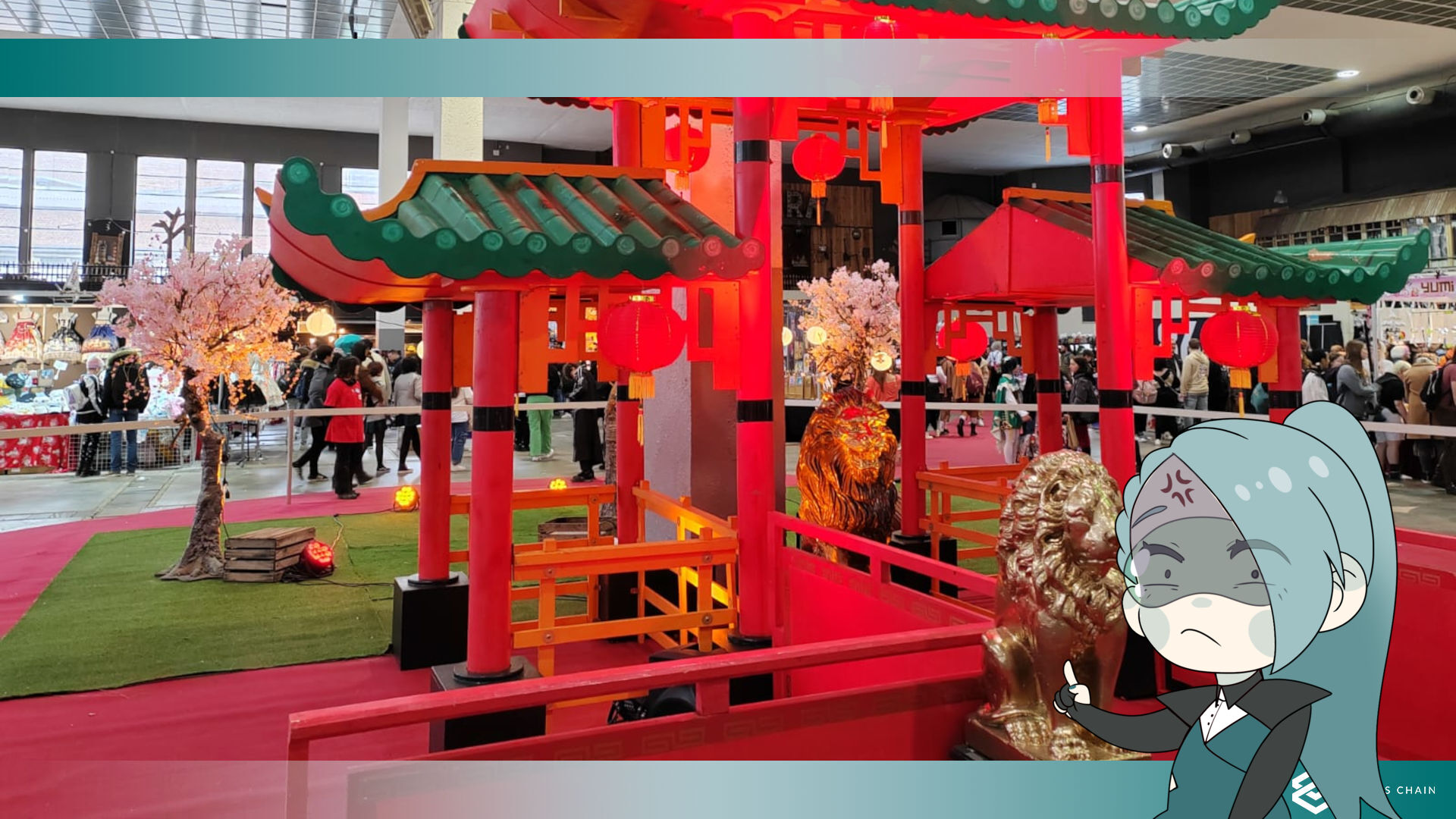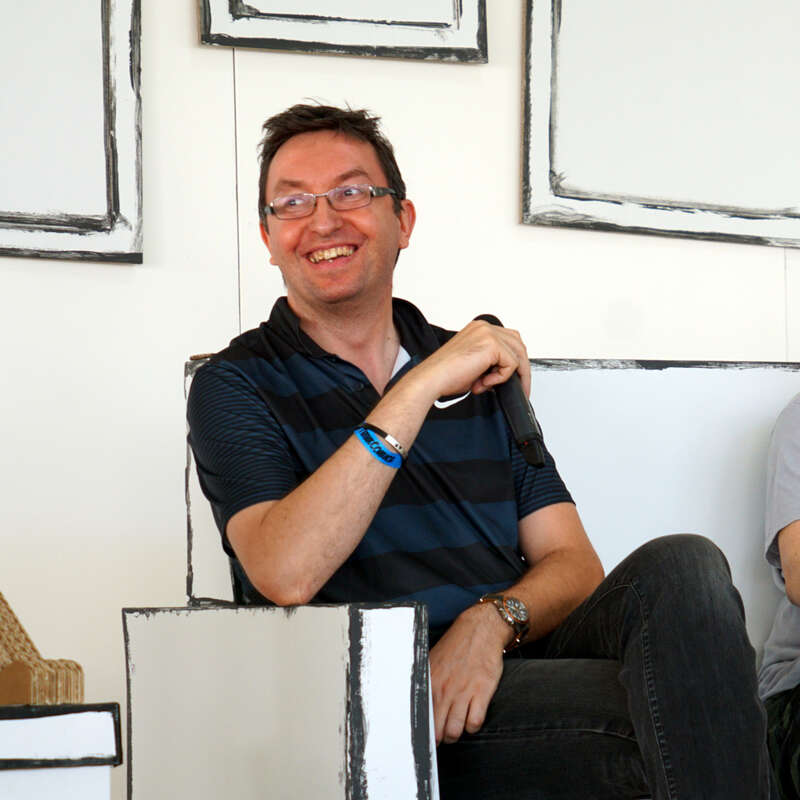These ungrateful artists should thank events for the space they are given

- 2023-06-23
- Sebastian Zdrojewski
- Opinions
Disclaimer:
This post is mostly related to events and situations localized in Italy. If you are aware of such situation in the European Union or other places, we'd like to hear from you! (with great consideration of your privacy). Would you like to share your experience? Contact us!
Cover picture: Made in Asia Bruxelles, picture by the Author.
In recent years, the number of trade fair events geared towards the world of pop culture has increased exponentially. There is no weekend without an event, fair or festival related to the world of comics, animation or cosplay.
On the one hand, a large number of artists and craftsmen are genuinely and seriously trying to find places to exhibit their work. On the other, event organisations that complain about the lack of artists and, to some extent, of professionalism from those who would like to exhibit.
This post came about as a result of some opinions read on social media complaining about the lack of professionalism of some artists who did not show up at fairs, leaving empty tables, or who complained publicly about how events are managed. With even a hint of what these artists should do, as a lesson for the future.
I will make some very sterile and extremely mercenary remarks, certainly not as an artist.
Let us start with an essential element.
Fairs, by definition, should be places where you can find something that you cannot normally find around. Mainly because it is not there yet, because it's new, because 'it's a niche'. They are not only gathering places for cosplayers and lovers of that niche: they are revenue opportunities for everyone.
So yes: the artist alley is a place where artists can gain visibility, share their work, earn from their work (like all other areas of trade fairs).
Thus, yes, the artist alley is a place where artists can gain visibility, share their work, make money from their work (like all other areas of trade fairs).
Provided such visibility is offered by the fair: in terms of promotion, audience attraction, services. The job of the fair is not to 'sell spaces to artists/exhibitors' but to 'attract audiences interested in a topic, and make spaces attractive to exhibitors'. If you see it the other way around, something is wrong.
Among the nicest sentences I read was 'the artist's commitment is only to show up and exhibit his or her work'. Let me be very straightforward here: this is not an outing with friends or an evening at the brewery. For some it may be a hobby, but for most of the people we met (or rather, Yako met them, I only listen to his after-event stories) it is a business. And (TRIGGER ALERT) there are many artists who are willing to invest for a space, as long as the event offers the visibility mentioned in the previous point.
We are talking about individuals trying to create a professional future based on their profession: let's kill their expectations now.
The only point where I can agree with some of them is where they are asked to be professional in communicating their absence from the event so that the organisation can rearrange the situation.
But I wonder, listening to the voices of countless people: does the organisation earned the respect of being informed?
I mean: did it treat its exhibitors with the same seriousness and dignity? Has it offered a quality of service worthy of such behaviour?
It is ultimately a quid pro quo: give respect to get respect.
Do you want to charge for seats? Do it.
But in exchange for what? What value does the event offer to those who want to exhibit?
The artists considering going to the fair do no more and no less than the same maths that the organisers do. And the question they ask themselves is just as simple: "How much do I get out of it? How much does it cost me to go?"
The promises are always many and beautiful.
The reality of the facts? The story changes a bit.
What does the fair offer its exhibitors?
A space.
That's it. That is the only thing offered. Because I haven't seen much in the way of services, personally. Some advertise in the traditional media, definitely something on social media, but the truth is that it is all based solely and exclusively on the echo generated by the artists. Clearly, the more media coverage THEY get, the more visibility the event gets.
But shouldn't it be the other way around?
Has the organisation ever taken an interest in following the exhibitors or artists who decided to INVEST (time and money) to go there? Has it ever taken the trouble to check whether they were satisfied with the spaces and services? Did they offer anything during the event? I am not talking about water or food. I am talking about services that could increase their exposure, their professional opportunities. Panels, events, small spaces, social media posts, interviews? Did they ever bother to offer accurate information about spaces, maps, how to get to the stand? Did they ever give artists who INVEST their time and money in organising THEIR marketing on time? Have they ever organised conventions with hotels in the area to create facilities for those arriving from far away?
What does the fair provide to its audience?
Pretty much always the same things. At all events. Same products, often counterfeit, the same mainstream stuff in abundance. The same comics sold from multiple stands, who have them there just because 'they sell so much'. The same gadgets, often bought on some Chinese e-commerce*, perhaps following the fashion of the moment. The same stands selling the same digitally printed stuff, the same stands with the same swords, gadgets, action figures that by now may be dated by carbon 14.
I repeat myself as this rule always applies: there are always quality exceptions.
Ah and the food area.
Events have become copy-paste affairs where the usual things are always there.
The venues that perform best? Those that have beautiful settings (there are some). Which, put another way, indicates that they are places to congregate and offer little or nothing of what is on display.
The only areas that make a trade fair interesting are those that bring novelties, not just guests.
The areas of the smaller publishers (not that the larger ones are viewed badly). The artisans' areas, the self areas, the artist alleys, the independent projects, the indie areas.
As long as you don't understand what a trade fair is for an exhibitor, you will continue to grope in the dark and complain that the tables are empty, and that the fair 'used to be good'.
Trade fairs are the manifestation of innovation.
'We have always done it this way' serves no purpose other than to lead you into gradual decline.
People must be respected, whether they are established professionals or novices. And it is precisely the latter who should be supported.
But surely there are those who know more about organising events than I do.
- (this post is part of the author's #fridayrant post cycle)
Disclaimers:
* the reason why I mentioned "Chinese e-commerce" websites is due to our research about the source of counterfeit product sources.
